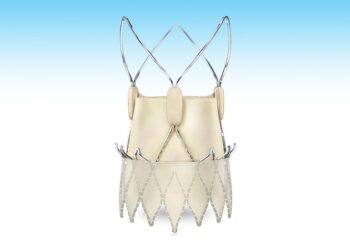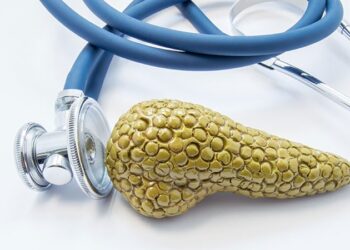
- Stress is considered a modifiable risk factor for stroke.
- A new study found that stress may have a more significant impact on stroke risk in females than in males.
- Females were more likely to report higher perceived stress than males, raising concerns about the unique stressors many women may face.
Chronic stress is a common risk factor for stroke, but may not affect everyone the same way.
Stress is inherently subjective. For some people, stress could be caused by an important work deadline, while for others, it could arise from financial strain or family problems.
When stress builds up over time, it becomes chronic stress, which is associated with a host of health problems, from high blood pressure to headaches, and even stroke.
New research published on March 5 in Neurology suggests that stress is not only a significant risk factor for stroke, but it appears higher for females than males.
The study builds on evidence showing how stress plays a role in stroke risk but also raises important questions about its effects on females compared to males. Female participants in the study reported higher levels of stress, while stress was also more strongly correlated with stroke risk than males.
“This study highlights the importance of recognizing that there are significant gender differences that affect stroke risk throughout life,” Christina Mijalski Sells, MD, a clinical associate professor of neurology and neurological Sciences at Stanford Medicine who wasn’t affiliated with the study, told Healthline.
To better understand the association between stroke and stress, researchers from Helsinki University Hospital in Finland took a granular approach by studying stress type, frequency, and intensity.
The study included 426 patients who had experienced a cryptogenic ischemic stroke (CIS), a type of stroke in which blood flow is cut off part of the brain, but the cause is unknown. Those patients were matched with a control group of 426 individuals by age and sex who had not had a stroke.
The participants were younger (18 to 49 years old), with an average age of 41. The group was also almost evenly split, with more males than females (47.7%).
All participants completed a questionnaire to self-assess their stress levels using a validated survey known as the Perceived Stress Scale (PSS). Using the PSS, participants received a numerical score for their stress levels: 0–13 (low stress), 14–26 (moderate), and 27–40 (high).
Researchers also collected information related to traditional stroke risk such as education level, smoking, alcohol consumption, and obesity.
Those who had experienced a stroke reported higher average stress scores (13) compared to the control group (10). Around 46% of stroke survivors reported moderate-to-high stress levels compared to 33% of those who did not have a stroke.
When researchers controlled for traditional stroke risk factors, a stark contrast emerged between how stress affected males versus females.
For females, moderate stress was associated with a 78% increased risk of stroke, while high stress was associated with a 6% increased risk of stroke. There was no observable increase in stroke risk among males.
“To my knowledge, this is the first time this has really been shown: that maybe stress itself can be another factor that lessens the protection that females normally have for cardiovascular disease,” Sarah Lindsey, PhD, an associate professor of pharmacology at Tulane University School of Medicine, told Healthline. Lindsey wasn’t affiliated with the study.
However, while these findings suggest higher stress-related stroke risk among females, the findings are an association and do not imply causation.
“More research is needed to understand why women who feel stressed, but not men, may have a higher risk of stroke,” Nicolas Martinez-Majander, MD, PhD, of the Helsinki University Hospital in Finland, said in a news release. “In addition, we need to further explore why the risk of stroke in women was higher for moderate stress than high stress. Knowing more about how stress plays a role could help us to create better ways to prevent these strokes.”
The study raises several important questions about the unique effects stress may have on females and illuminates social factors that may contribute to higher rates of stress.
“As a society there’s increased recognition now of the stress on women who are often the primary parents and potentially balancing multiple roles and responsibilities between work home and family,” Mijalski Sells said.
“Oftentimes women are the default primary parent. As we move to two-income households being more common, they may still be carrying all of that burden from home and child care, in addition to also balancing that full-time work,” she emphasized.
However, she noted that the study only scratches the surface of these social factors. Other important factors such as race, type of work, and whether there are children in the home were not included but are potential contributors to stress.
In addition, because the study findings are an association, it is not understood why moderate stress had a higher association with stroke risk compared to high stress.
Lastly, the study authors evaluated stress levels after participants had already experienced a stroke. The authors asked subjects about their stress levels before their stroke, which could influence the results.
Be that as it may, the number of participants who reported high stress was significantly smaller than those reporting moderate levels, effectively making it an outlier.
“That analysis probably isn’t worth doing because there were not very many patients that reported the high-stress category. So, with the small numbers there, I don’t know that we can really draw many conclusions from that,” Carolyn Cronin, MD, PhD, Division Chief of Neurology at Vanderbilt University Medical Center, told Healthline.
Stress is an important stroke risk factor that may affect females differently than males.
In a new study, females reported higher average stress levels than males. Stress was also a significant stroke risk factor for females, but not males, after controlling for traditional stroke risk factors.
Researchers found that moderate stress levels were associated with a 78% increased risk of stroke in female participants.
While these findings are not fully understood, experts noted many females experience unique stressors compared to males, which could contribute to higher stress levels.
Source link : https://www.healthline.com/health-news/chronic-stress-higher-stroke-risk-young-females
Author :
Publish date : 2025-03-06 09:03:57
Copyright for syndicated content belongs to the linked Source.














